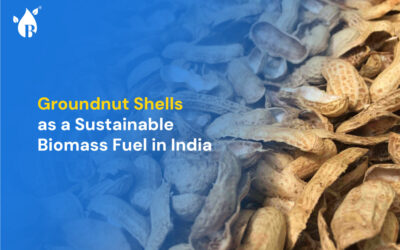
India, being one of the fastest-growing economies in the world, has been facing several environmental concerns. One of the most significant challenges is the reliance on non-renewable energy sources such as coal, oil, and natural gas. Resultantly, this has led to greenhouse gas emissions, contributing to global warming and climate change.
To combat this issue, India has been actively promoting the use of biofuels as an alternative source of energy. Biofuels are fuels derived from renewable biomass such as plant materials or animal waste. They are considered to be a cleaner alternative to fossil fuels, as they emit fewer greenhouse gases and minimize the dependence on non-renewable energy sources. In India, biofuels are primarily used in the transportation sector.
Read this blog also: What are 5 advantages of Biofuel?
The two primary biofuels used in India are biodiesel and bioethanol. Biodiesel is a renewable and biodegradable fuel made from vegetable oils, animal fats, or recycled cooking oil. Bioethanol is a type of alcohol made from sugarcane molasses, corn, or other plant materials. Biodiesel is mostly used as a blend with diesel fuel in a proportion of up to 20% (B20) in India.
The Indian government has set a target of achieving a 5% blending of biodiesel with diesel fuel by 2030. The government has also introduced a program called the National Biodiesel Mission to promote the cultivation of non-edible oilseeds in the country.
Bioethanol is primarily used as a blend with gasoline in a proportion of up to 10% (E10) in India. It is produced mainly from sugarcane molasses, which is a by-product of sugar production. The Indian government has set a target of achieving a 20% blending of bioethanol with petrol by 2030. The government has also introduced a program called the National Biofuel Policy to promote the use of biofuels in the country.
Read this blog also: What is Biofuel? Give Examples
Apart from biodiesel and bioethanol, other biofuels such as biogas, bio-CNG, and bio-HCNG are also being used in India. Biogas is produced by the anaerobic digestion of organic waste such as animal manure, crop residue, and municipal solid waste. Bio-CNG and bio-HCNG are compressed natural gas and hydrogen-enriched compressed natural gas, respectively, produced from biogas.
To summarize, India has been actively promoting the use of biofuels to reduce its dependence on non-renewable energy sources and mitigate the environmental impact of greenhouse gas emissions. The primary biofuels used in India are biodiesel and bioethanol, which are being blended with diesel fuel and gasoline, respectively. The government has set targets to increase the blending of biofuels with fossil fuels in the coming years, and several programs have been introduced to promote the cultivation of non-edible oilseeds and the production of biofuels from organic waste.



